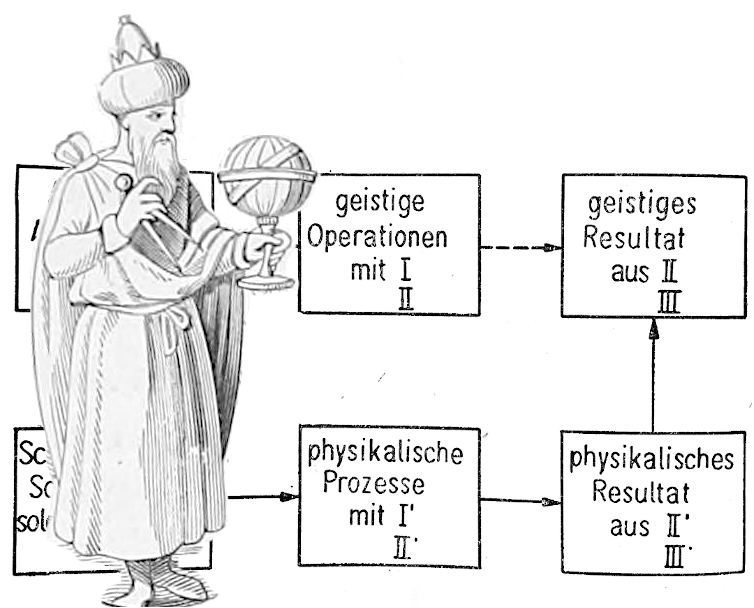An Agile Approach Towards Computational Modeling of Historiographical Uncertainty

This SNSF Spark project has been approved by the SNSF on 2019-11-18 (grant no. 190306); duration: 2020-03-01/2021-01-31.
Summary
In today's fast-changing world, the humanities are more important than ever—but they can meet their scholarly challenges and societal responsibilities only when they become more agile, to borrow a concept from software development. For the humanities to become more agile would mean to create explicit—ideally: computational—models, test them on data, publish them early for comments, and iteratively and incrementally improve them by integrating feedback from testing and other scholars. Publication includes providing access to underlying data to foster open access, open science, and reproducibility.
Computational models play a central role in this transformation of the humanities and social sciences, and if the humanities want to tap the full potential of the computer—which lies in its use as an infinitely flexible modeling tool—they need to reflect on their discipline-specific modeling challenges and practices. The establishment of theoretical digital humanities is a prerequisite for and a part of this larger transformation of the humanities. It is the task of the theoretical digital humanities to develop, in close dialog with the humanities disciplines, modeling frameworks and methods that can specifically address these challenges.
From a computational perspective, most of the knowledge the humanities are studying and producing is “uncertain”; for the most part, not “true” or “false” in a binary sense. We thus need to find ways to model this uncertainty in a way that allows us to use computers to handle uncertain knowledge, without having to quantify the unquantifiable. This is the long-term objective of this line of research.
In the exploratory study proposed here, we specifically focus on historiographical uncertainty. As we only have limited information about the past, most historical information, as well as its interpretation, is to some extent uncertain and in need of interpretation. As a first step towards computational models of historiographical uncertainty, we propose to create a foundation in the form of a taxonomy. Our approach is as follows: we first devise an abstract analytical framework of historical narratives. We then use this framework to guide our detailed analysis of a historiographical case study that has a “high density” of uncertainty, as indicated by ongoing historiographical debates. In particular, we will
- identify uncertainty,
- analyze the locus of uncertainty in the narrative (which entities or relations are concerned?), and
- examine its historiographical handling (e.g., what arguments or evidence is presented to support or refute a particular interpretation?).
The project will thus have two main outcomes: First, the taxonomy developed in the project and documented in a white paper will constitute a systematic analysis of historiographical uncertainty with a specific view to its formal modeling. This way, the project will make an important contribution to theory formation and help to advance the digital humanities from project-specific, often ad-hoc, solutions to particular problems to a more general understanding of the issues at stake. Second, the application of the agile development process to the humanities will contribute to the methodological evolution of the humanities in the digital age.
Together, the insights yielded by this project will form the foundation for the next step, to be taken in a follow-up project: the development and implementation of computational models, which can then be evaluated and further refined. In a larger sense, it is conducive to the development and establishment of theoretical digital humanities as a discipline and to the continued relevance of the humanities in the 21st century.
People
- Michael Piotrowski (PI)
- Mateusz Fafinski (postdoc)
- Axel Matthey (student assistant)
Output
- Lysiane Christen (2020). L’incertitude, un casse-tête pour les humanités numériques. In: Unicom 650, p. 9.
- Michael Piotrowski (2020-07-10). 🎥 What Are We Uncertain About? The Challenge of Historiographical Uncertainty. Invited talk in the workshop Modelling Vagueness and Uncertainty in DH. (↗ Lecture notes)
- Mateusz Fafinski (2020-07-13). 🎥 Uncertain Pages: Mapping Historical Uncertainty Between Manuscripts and Their Digital Facsimiles. Invited talk in the lecture series Old Scripts in New Digital Age Hermeneutics versus Artificial Intelligence.
- Mateusz Fafinski, Michael Piotrowski (2020). Modelling Medieval Vagueness. Towards a Methodology of Visualising Geographical Uncertainty in Historical Texts. Ralf H. Reussner, Anne Koziolek, Robert Heinrich (eds.): INFORMATIK 2020: 50. Jahrestagung der Gesellschaft für Informatik; 3. Workshop InfDH 2020 “Methoden und Anwendungen der Computational Humanities”. Lecture Notes in Informatics (LNI), Gesellschaft für Informatik, Bonn, pp. 1317–1326.
- Mateusz Fafinski, Michael Piotrowski (2020). Challenges for visualising spatial and chronological distribution of medieval manuscripts: towards a fuzzy ontology. Abstract accepted for Data for History 2020: Modelling Time, Places, Agents.
- Michael Piotrowski, Mateusz Fafinski (2020). Nothing New Under the Sun? Computational Humanities and the Methodology of History. In: Folgert Karsdorp, Barbara McGillivray, Adina Nerghes, and Melvin Wevers (eds.), CHR2020: Proceedings of the Workshop on Computational Humanities Research, Amsterdam, November, 18–20, 2020, p. 171–181.
- Michael Piotrowski (2020-09-23). 🎥 Ich weiss nicht, was soll es bedeuten … Überlegungen zur Modellierung historiografischer Unsicherheit. Invited talk at the conference Informationen – digital verpackt at the Zentralbibliothek Zürich (held online). (↗ Slides).
- Mateusz Fafinski (2020-10-22). Cartographies of manuscripts: (Im)perfect fit: Mapping medieval manuscripts and their digital facsimiles. Invited lecture for Basel Digital Humanities Lab held online.
- Mateusz Fafinski (2020-12-11). Digital Facsimiles: What They Are and Where to Find Them. Invited presentation for the Lancaster University Digital Humanities Hub held online.
- Data set: Axel Matthey, Mateusz Fafinski, Michael Piotrowski, 2021-02-03, Historical uncertainty in Gregory of Tours's History of the Franks (Book 7). doi:10.5281/zenodo.4485881